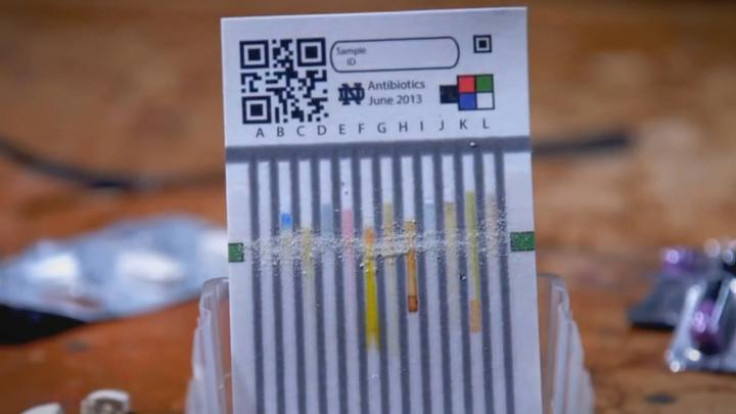Scientists develop $1 paper card that can spot counterfeit drugs
Researchers focused on 'falsified or degraded antibiotics' like ciprofloxacin or ceftriaxone, which WHO considers 'essential'

Scientists have come up with a $1 paper card specifically designed to identify counterfeit, substandard or degraded drugs, according to a new paper presented at the American Chemical Society.
"People who don't have access to the best-quality medicines also don't have as many resources to buy the analytical instrumentation to detect the quality problems," said co-author Marya Lieberman, Ph D. "Instead of a $30,000 instrument, we've developed a $1 paper card. We designed the card so it would be as easy and inexpensive to use as possible."
Counterfeit drugs are increasingly becoming a major problem, especially given the rise in internet sales of medication, putting people across the globe and not just in developing nations at risk. According to WHO (World Health Organization), "substandard, spurious, falsely labelled, falsified and counterfeit (SSFFC) medical products are by their very nature difficult to detect".
The new study presented by Lieberman of the University of Notre Dame and Hamline University undergraduate Sarah Bliese, focused on 'falsified or degraded antibiotics' like ciprofloxacin or ceftriaxone, both of which WHO considers 'essential'.
The paper card developed by the researchers contains chemical indicators, designed specifically to react with antibiotics, when crushed into powder. Researchers tested the card by placing suspicious antibiotics on the card and submerging it in water for three minutes. This process triggers a chemical reaction, which prompts the card to adopt a specific colour pattern, indicating that the antibiotics are up-to-date and effective.
The paper card could also potentially be used to detect the presence of dangerous chemicals in nutritional and herbal supplements. "Sometimes those 'herbal products' are actually spiked with pharmaceuticals," Lieberman explained. "The paper test cards could be a defence against this."
© Copyright IBTimes 2024. All rights reserved.






